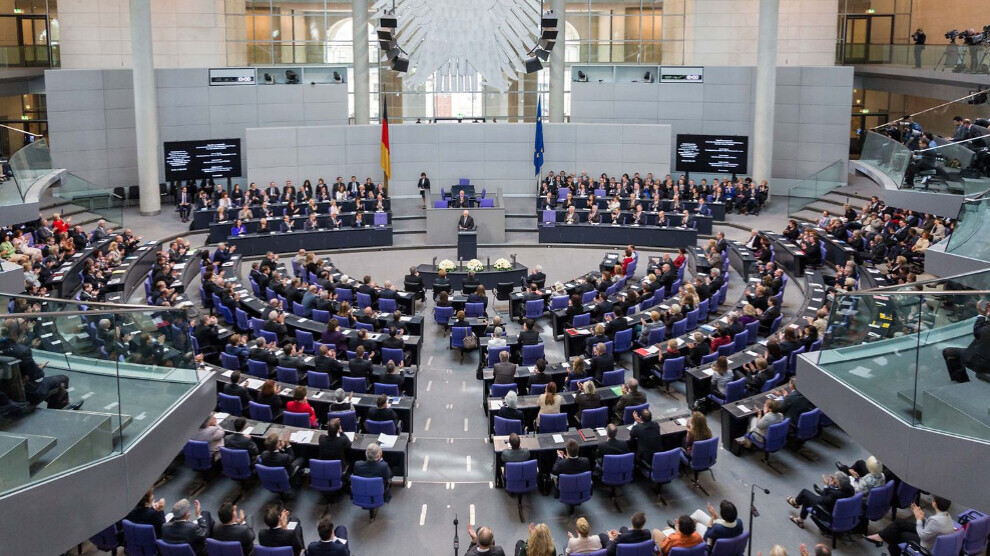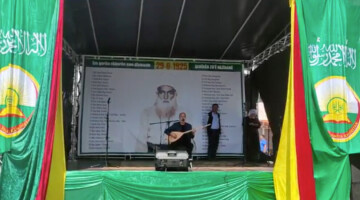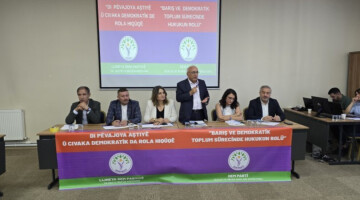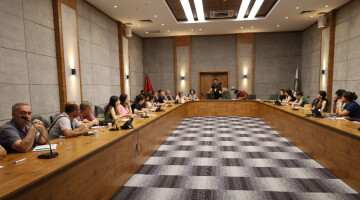Since 1994, the Federal Administration Office has been sharing information about the members and administrators of Kurdish associations in Germany with the State Office for the Protection of the Constitution (domestic intelligence agency) and the Police Department. This cooperation has no legal basis and stems from a decree of the Kohl government in 1994.
Left Party Deputy Gökay Akbulut brought up the issue in the parliament last May to lift this practice which has led to the criminalization of Kurds. Akbulut asked the new federal government of Olof Scholz about the decree that allows information on Kurdish associations to be automatically shared with the intelligence service and security agencies. The Ministry of Interior replied that it could not find the decree in question, yet confirmed the process of implementation.
Akbulut then asked the Scientific Services Office of the Federal Assembly whether this practice directed at Kurdish associations for 28 years was in accordance with the laws. The Scientific Services Office, tasked with advising lawmakers and the government on scientific/legal issues, prepared a report on the subject.
'INFORMATION CANNOT BE PROVIDED AUTOMATICALLY'
The Scientific Services Office said that the data of Kurdish associations cannot be automatically submitted to the intelligence and security units. It added that the decrees are only the internal laws of the administration and therefore cannot provide authorization for state institutions. The Scientific Services Office reported that sharing of information about Kurdish associations with intelligence and security agencies is not in accordance with the law.
The report revealed that if a Kurdish association is found to be "suspicious", the information in question can be given to the intelligence agency, yet suspicion is not enough for the information to be forwarded to the Security Directorate. The Scientific Services Office criticized the Federal Administration Office for this practice, which it deemed unlawful.
WHICH INTELLIGENCE ORGANIZATIONS RECEIVED INFORMATION?
Lawmaker Akbulut said that the monitoring and blacklisting of Kurdish associations by security units is unacceptable and should be removed immediately. Pointing to the report of the Scientific Services Office, Akbulut said that the Ministry of Interior should suspend data collection on Kurdish associations until a new legal regulation is introduced in line with the office's request.
The Scholz administration admitted that information on associations which consist of foreign nationals had been shared with foreign intelligence services. Akbulut pointed out that it should be revealed whether the Turkish intelligence service (MIT) is among these foreign intelligence organizations. “If information is shared with the Turkish intelligence service, members of Kurdish associations should be warned,” the lawmaker said.
DISCRIMINATION AGAINST MIGRANT ASSOCIATIONS
In accordance with the "law of associations" introduced in Germany in 1966, information on associations run by foreign nationals in the country is submitted to the Federal Administration Office in Cologne. According to the law of associations, these associations are required to send the names and addresses of the members of the board of directors and their charters to the Federal Administration Office. Information concerning approximately 15 thousand associations has been transferred to this office so far.
This method, which is tantamount to blacklisting all organizations belonging to immigrants, is not applied for associations which mostly consist of German nationals. One of the opposition parties, the Left Party, demanded that the law be amended with a new bill it submitted to the Federal Assembly in 2020, under the motto "End the marginalization of immigrants". However, the Left Party’s request was rejected by the votes of both the government and other opposition parties.














